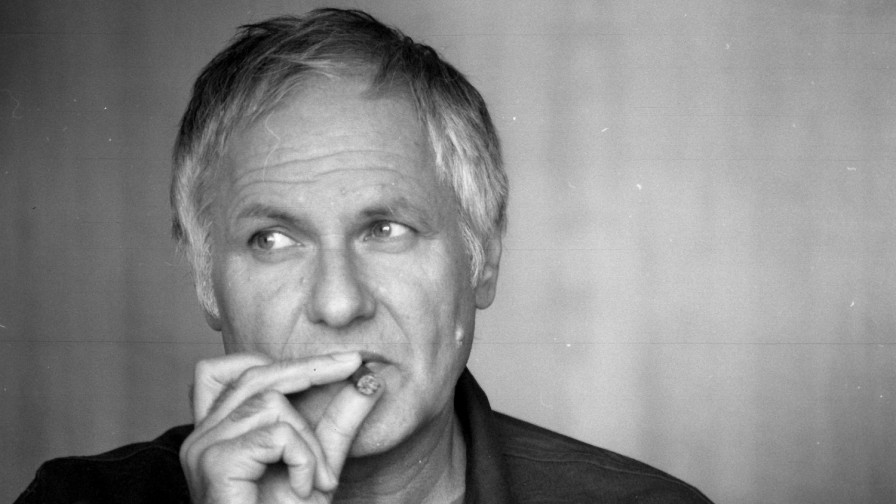Törőcsik, Jancsó and Jankovics in focus at Budapest Marathon
Immortal artists of Hungarian cinema are at the heart of Budapest Classics Film Marathon organized by National Film Institute – Hungary.
Starting 21 September, the international classics film showcase pays tribute to Mari Törőcsik, Miklós Jancsó and Marcell Jankovics among others. Audiences at several Budapest venues, including at open-air screenings in front of St. Stephen’s Basilica, can enjoy gems of cinema restored by the National Film Institute – Film Archive as well as foreign classics that have a Hungarian connection.
The Hungarian National Bank marks the 120th anniversary of the birth of Hungarian film by issuing a commemorative coin featuring iconic moving pictures.
By way of celebrating the 100th anniversary of the birth of Miklós Jancsó, called ‘The Master’ by none other than Martin Scorsese, the National Film Institute – Film Archive is completing the digital restoration of all Jancsó’s pre-1990 Hungarian works.
The Budapest Classics Film Marathon In Focus programme presents those films that have already been completed, thereby allowing audiences to experience his iconic masterpieces in superb quality.
Szegénylegények (The Round-Up) is projected on the giant open-air screen in Szent István Square on 22 September, then it is being re-released in cinemas by Pannonia Entertainment.
Marathon is also screening Jancsó films in Uránia National Film Theatre, Toldi cinema and the French Institute: Oldás és kötés (Cantata), Csend és kiáltás (Silence and Cry), Sirokkó (Winter Wind), Szerelmem, Elektra (Electra, My Love), A zsarnok szíve, avagy Boccaccio Magyarországon (The Tyrant’s Heart, or Boccaccio in Hungary) and Isten hátrafelé megy (God Walks Backwards).

Silence and Cry directed by Miklós Jancsó (photo: Gyula Szóvári)
Mari Törőcsik passed away this spring, but she has left us with a long list of her unforgettable films in which we can marvel at her captivating talent time and time again. Cannes film festival audiences were spellbound by Mari Törőcsik’s acting on no fewer than 11 occasions and her talent is highly appreciated all over the world. During Marathon, we can see her play the lead roles in Márta Mészáros’s Holdudvar (Binding Sentiments), Zoltán Fábri’s Édes Anna (Anna), Miklós Jancsó’s Csend és kiáltás (Silence and Cry) and Szerelmem, Elektra (Electra, My Love), Mihály Szemes’s Kölyök (Our Kid) and Gyula Maár’s Déryné, hol van? (Mrs. Déry, Where Are You?) screened in Uránia National Film Theatre and Toldi cinema.
Marcell Jankovics is a key figure of Hungarian animation and generations were brought up on his films. In 1982, at the Los Angeles animation Olympics, the film Fehérlófia (Son of the White Mare) by the director – winner of a Cannes Palme d’Or and Oscar nominee – was selected one of the best 50 animation films of all time. The beauty of his works is best appreciated on the big screen. During the Marathon, his breathtakingly virtuoso, richly coloured film János Vitéz (Johnny Corncob) is screened in the square in front of St. Stephen’s Basilica. The cartoon combining in a totally unique way elements of folk art and Art Nouveau was made for the 150th anniversary of the birth of Sándor Petőfi in 1973. In the first year of its release, more than 1,5 million people saw it in cinemas and it has remained one of the all-time favourites of Hungarians. This year it was again shown in America thanks to a collaboration between NFI Film Archive and Los Angeles-based Arbelos Film.

Johnny Corncob
The premiere of the restored version of Marcell Jankovics’s Ének a csodaszarvasról (Song of the Miraculous Hind) takes place in Uránia National Film Theatre on 25 September. Restoration of Ének a csodaszarvasról, which is about the ancient history of the Magyars, was carried out in the workshop of NFI Film Archive, with the assistance of cinematographer Zoltán Bacsó and sound engineer Péter Rozgonyi.
On the initiative of the National Film Institute, 2021 was declared the jubilee year marking the 120th anniversary of the birth of Hungarian film. On this occasion, Hungarian Mint Ltd. and the National Film Institute issued – in a special collaboration – a commemorative coin, thereby paying tribute to world-famous Hungarian cinema. Both faces of the commemorative coin picture motifs from two iconic works, A táncz (The Dance) and one of the great classics, Körhinta (Merry-Go-Round).
